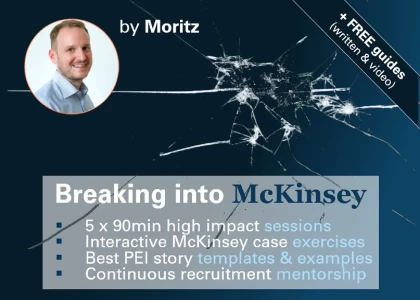Hi, I would like to seek your advice on the conclusion part. Many experts on Preplounge advocate it is important to include “risk & next step” in the conclusion.
My question is, is “risk” always required? Also, if “risk" is mentioned, does it mean that “ways of mitigation” should be included? Is this “ways of mitigation” included in the “risk” part, or the “next step” part?
I'm confused about this “risk & next step” approach. In some cases, I feel that stating “risk” of the proposed solution makes the solution sound uncertain and weaker, and I'm acting like poking a hole into the advice given to the client. (I feel that it's not practical if you suggest a solution to client but mention some uncertain risks which there's no clear mitigation plans.) Could you shed some lights please?















